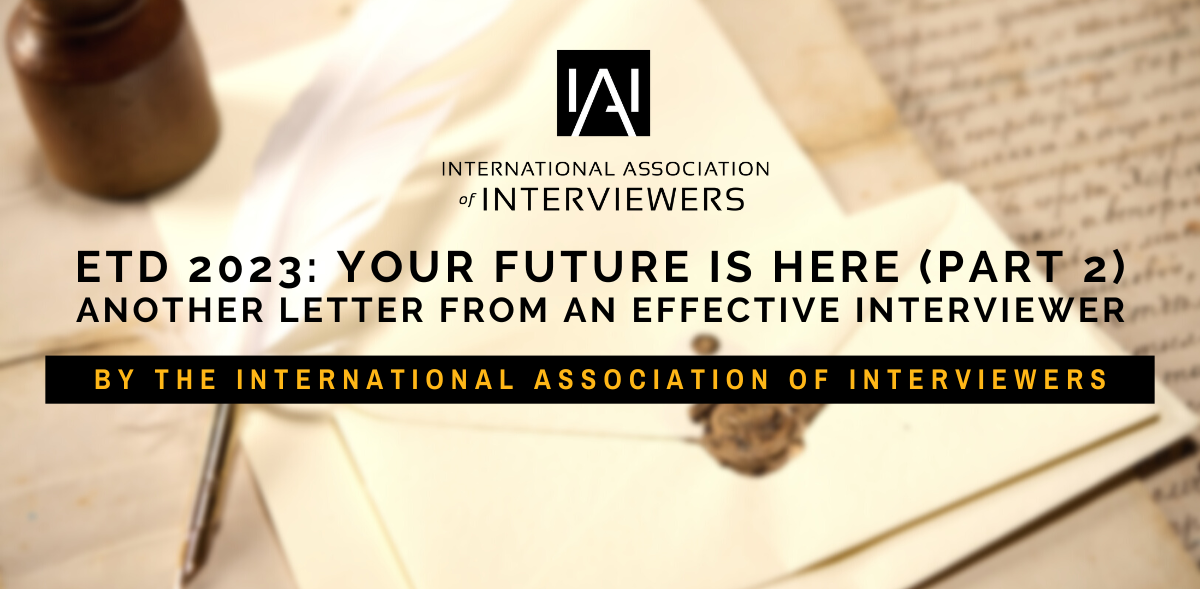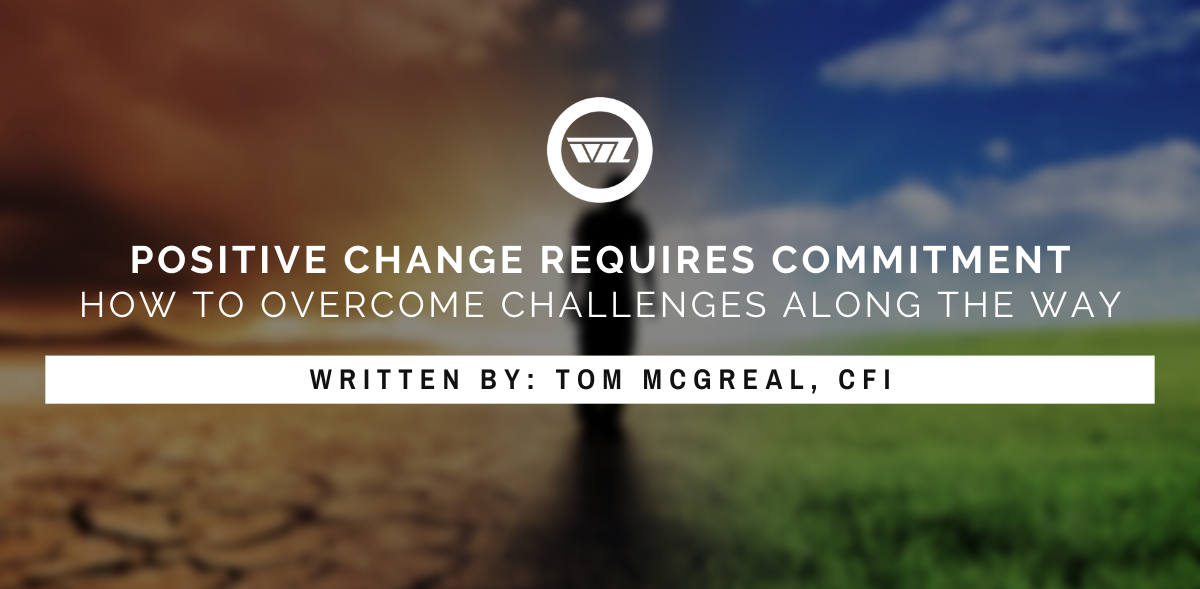Let’s begin with the basics:
Mentor
noun – A trusted counselor or guide
Thank you, Merriam–Webster, for forcing me to open a dictionary for the first time in 40 years.
This topic seems to be surfacing more and more in various engagements throughout the country, and I love it. It’s refreshing to work with professionals who are attempting to get their arms around the application of a new skill set in an arena other than truth-seeking conversations. I would venture to guess, most conversations within our industry are sensitive in nature. In today’s world, where everything is potentially on record, the ability to effectively communicate a challenging message while being intentionally mindful of how it may be received is a skill worth having. There are dozens of people out there who have conducted thousands of hours of research in search of defining what it means to be an impactful “mentor.” No matter how much time academia may dedicate to the effort, it doesn’t always directly translate into the 12 x 12, practical, dynamic venue where you and I tend to live and operate.
No one gets it right every time. I’m confident, if I had a dollar for every time a well-intended comment wasn’t received the way I had planned, I’d have pulled the ripcord years ago and would likely be hiding deep in the mountains of Tennessee (typed the divorced man).
Instead of being concerned about being perfect, let’s work on being disciplined and strategic when offering guidance to others.
There’s a stigma that mentoring belongs solely to those who’ve “been around the block” a few times and are now just paying it forward to those with fewer certificates on the wall. First off, the old dogs like me quite often are a little more challenged with letting go of bad habits learned in yesteryear. Secondly, the art of delivering difficult messages has evolved (a tad) from generation to generation.
Earlier this morning, Hoov (aka Wayne Hoover, Senior Partner) and I were on a call catching up on how much things have changed since we started with WZ. We were giggling about how “constructive criticism” was delivered when we first began our careers 20+ years ago versus today. I wouldn’t change a thing as to how the message was delivered to me – it hit home. I fondly remember reviewing videos from my investigations where an infinite number of “coaching” conversations started with, “Now BW, don’t take this personal” (code for “You will be taking this personal”). It left a lasting impression, shedding light on the difference between where I THOUGHT I fell on the food chain of professional interviewers versus where my bosses so willingly shared otherwise.
Interestingly enough, the definition of, “constructive criticism”, should and will continue to evolve within organizations. This evolution is what ensures employees have an atmosphere where they have the opportunity to thrive.
The Makings of a Mentor
So, who exactly is fit to provide such sage advice? What are the unique characteristics that allow some to lead with such passion that their teams would run through a brick wall for them?
I’ll let you know should I ever figure that one out. Actually, I won’t. I will patent it, begin selling this secret at an outrageously-inflated rate and go hide in the aforementioned mountains.
What I can do, however, is share with you my experience.
Let’s start with phrases not likely to be found in any consciously competent mentoring session:
“In my humble opinion….”
“How I would do it…….”
“I think my record speaks for itself when I say……”
“Based on my years of expertise……”
Notice any common denominators?
Now, instead, what if we were to begin offering guidance with statements like:
“I hear where you’re coming from and understand, but let’s consider….”
“What’s important here is to relinquish the idea of what is perfect and embrace the idea of what is impactful….”
“When you say ________, help me understand the message you’re attempting to deliver….”
“Before we even begin, the good news is we’re both going to be in a position of learning today….”
Speaking as someone who’s age is now north of half a hundred, I have been mentored by so many individuals I wouldn’t even attempt to name names out of fear of leaving someone out (it’s a good day when I can remember what city I just flew in from upon arrival to baggage claim). Several of those mentoring experiences were under unique circumstances, and certainly not all within my professional scope. I’m not sure age, nor the number of certificates on the wall qualifies anyone to be in a position of mentorship. Certain skill sets cannot be taught or purchased. Some just “have it” and display a distinct way of leading by example.
A handful of the inherent qualities I’ve learned from many mentors who have made a lasting impact on my life are the following:
- Patience
- Empathy
- Hunger
- Selflessness
- Passion
- Hope
- Listening
- Supportiveness
- Love
I’ve learned patience from my son who somehow balances ROTC, 18 hours a semester for a double major, and being a college athlete with ease and grace (he didn’t get that from my DNA). I’ve learned empathy through the doctors and medical staff at the military hospital who cared for my dad near the end of his battle. I’ve learned hunger from students who felt the need to apologize for the number of questions they were asking (that’s why you’re there – who cares what anyone else thinks – ASK!). I’ve learned selflessness from Community of Faith in Hockley, Texas (this town is just south of “The South”). I’ve learned passion from those who bear the entrepreneurial spirit and are brave enough to leave corporate America to start their own venture. I’ve learned hope from observing parents watch their kids cross that stage, grab that diploma, and head into the opportunity to prove all the challenges were worth every second. I’ve learned listening from a course I took in college (that was the actual name of course) of which I mistakenly thought entering would bring up the ol’ GPA. Let’s just say it was an academically challenging course, but a win-win (certainly learned never to listen to our team’s tutor advice on electives, but it did set the stage for a career). I’ve learned the value of being supportive from a couple of physical therapists who I watched help dozens of people entrenched in a cycle of doubt and negativity fight through without giving off a hint of frustration in their eyes or tone. I’ve learned love from a team of people who bent over backwards to help me bounce back after grossly overestimating my toughness and resiliency post-back-surgery.
Going to steal a line I’ll never forget from an old friend of mine, “Old age and wisdom trump youth and enthusiasm everyday”. We should all be so lucky to grow and learn these critically important characteristics only true mentors possess (and then attempt to display them on occasion – capiche?).
I’m confident we all know true mentors are not self-proclaimed; they’re developed by other genuine mentors who learned from individuals whom they, too, looked up to in generations past, and the cycle continues.
The good news is mentorship is an art, not a science, and there’s still time to work on our game. I’m sure there is someone out there who has filled these shoes for you.
Since we’re heading into the season of Thanksgiving, it may be a good opportunity to pick up the phone and let them know how they played a role in your success and development. My guess is if they are true mentors, they will have no idea of the real impact they’ve made in your life.
Excuse me – I’ve got a call to make….
Be safe out there.
BW
Brett L. Ward, CFI, Vice President of Business Development and Client Relations, a frequently requested speaker for Wicklander-Zulawski & Associates, Inc. (WZ), has led over 900 seminars on Interview & Interrogation Techniques for private, law enforcement and government entities in his 2+ decade career with the firm. Having consulted on 4 continents, and in 2 dozen (+) countries, Mr. Ward understands the challenges faced by multiple verticals handling investigative interviews in a widely diverse arena. Brett currently runs point for the Private Division for WZ, a responsibility including 240+ clients and 150+ contractual and open registration programs annually.




